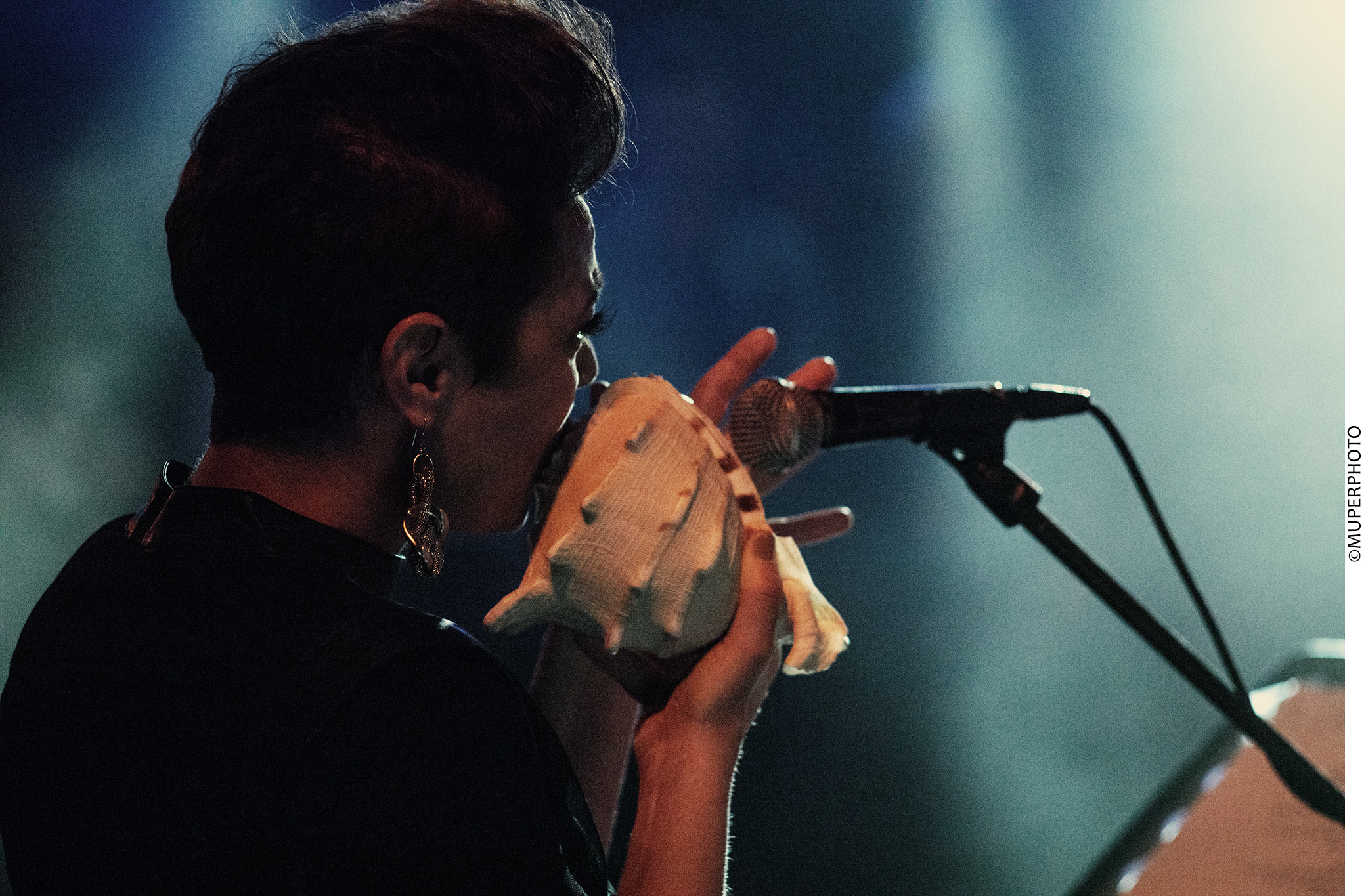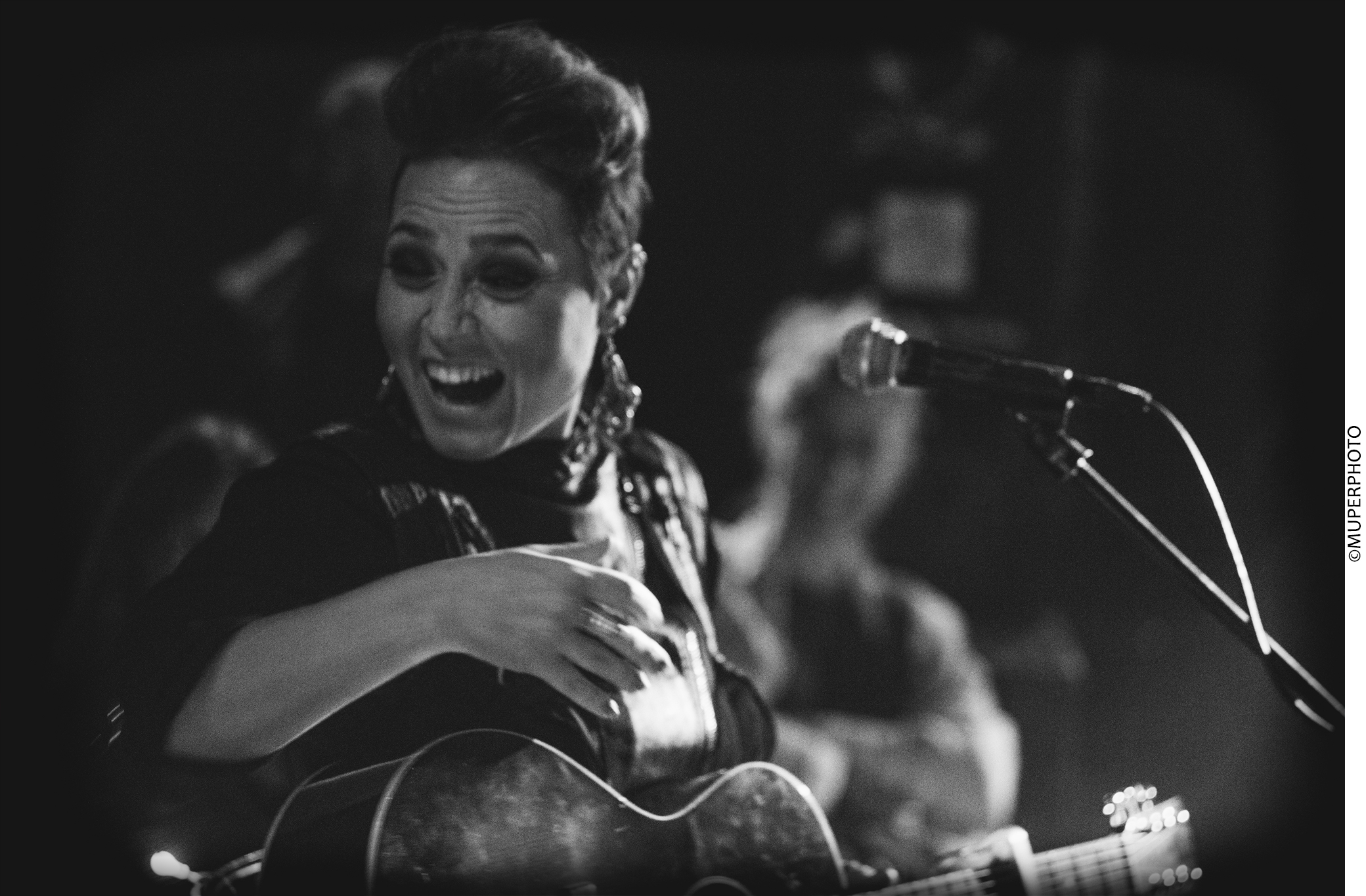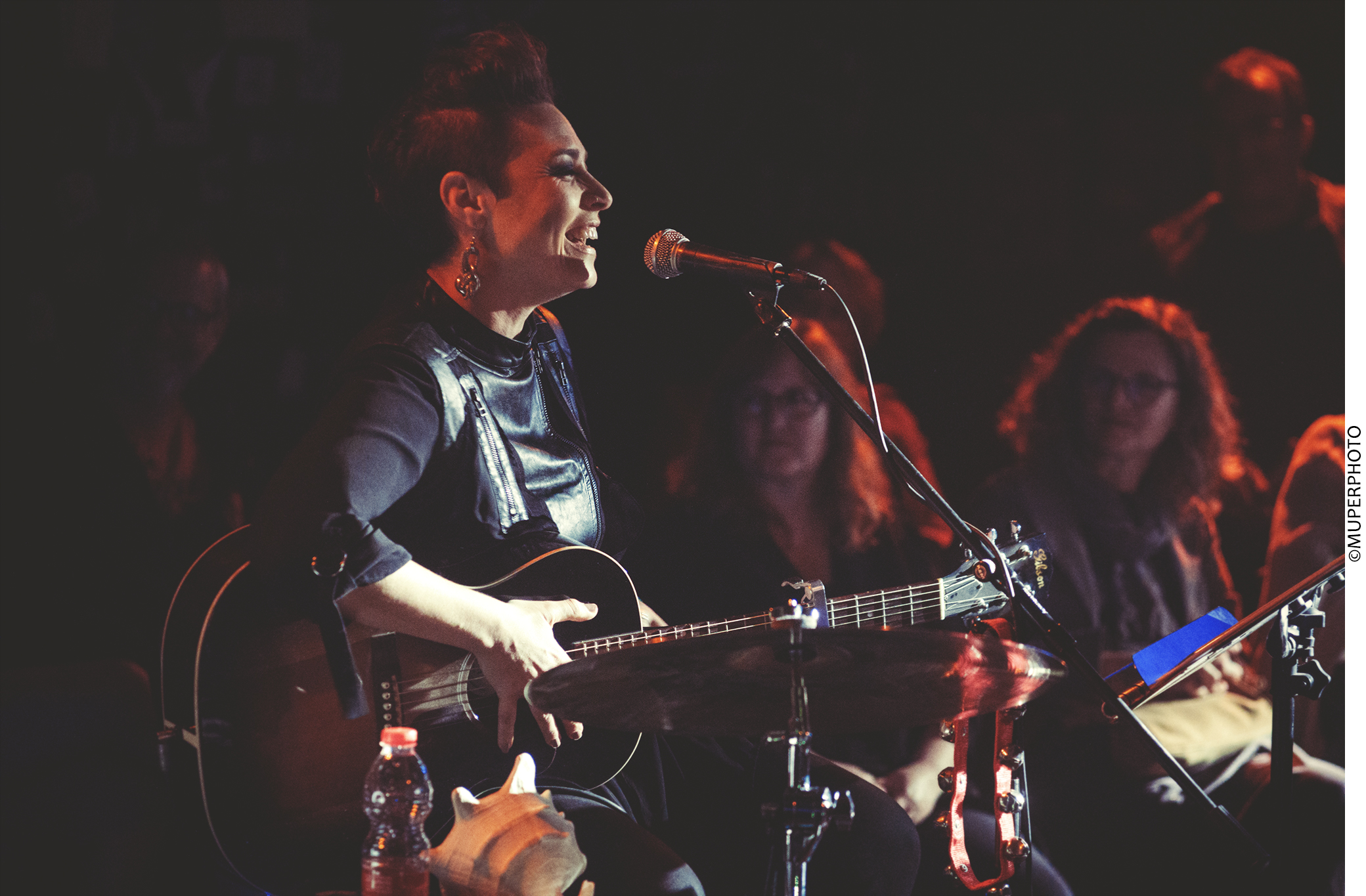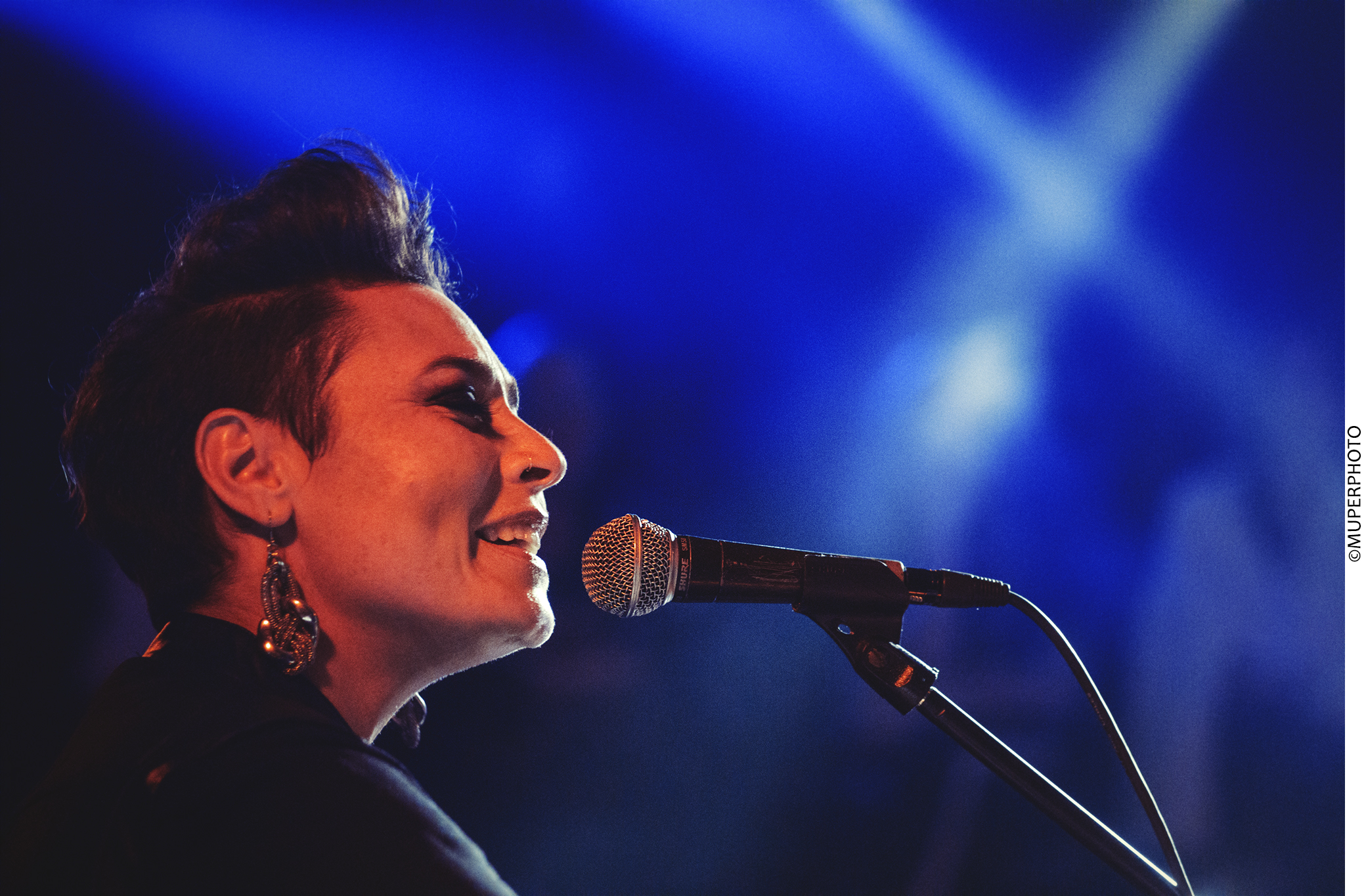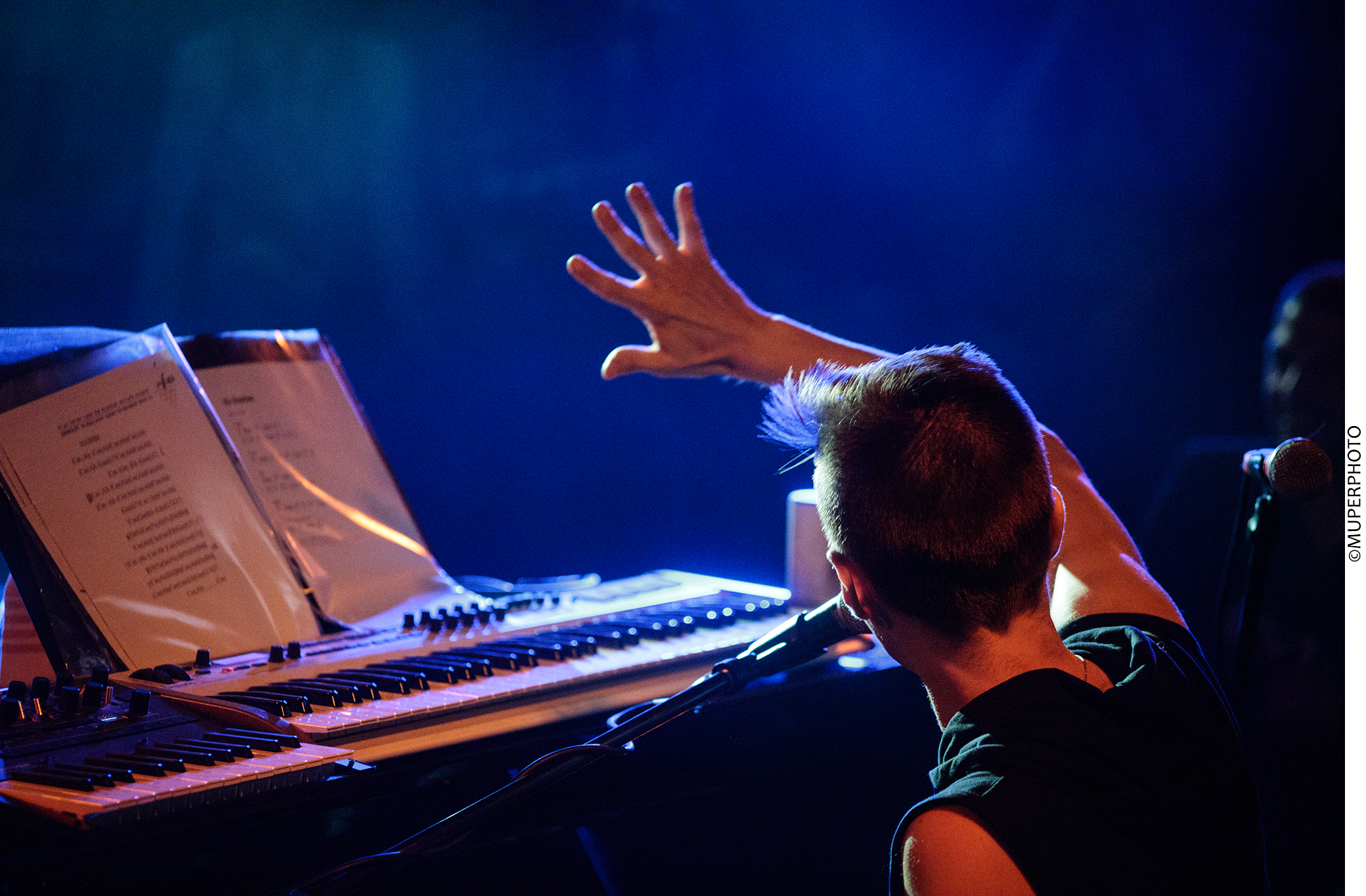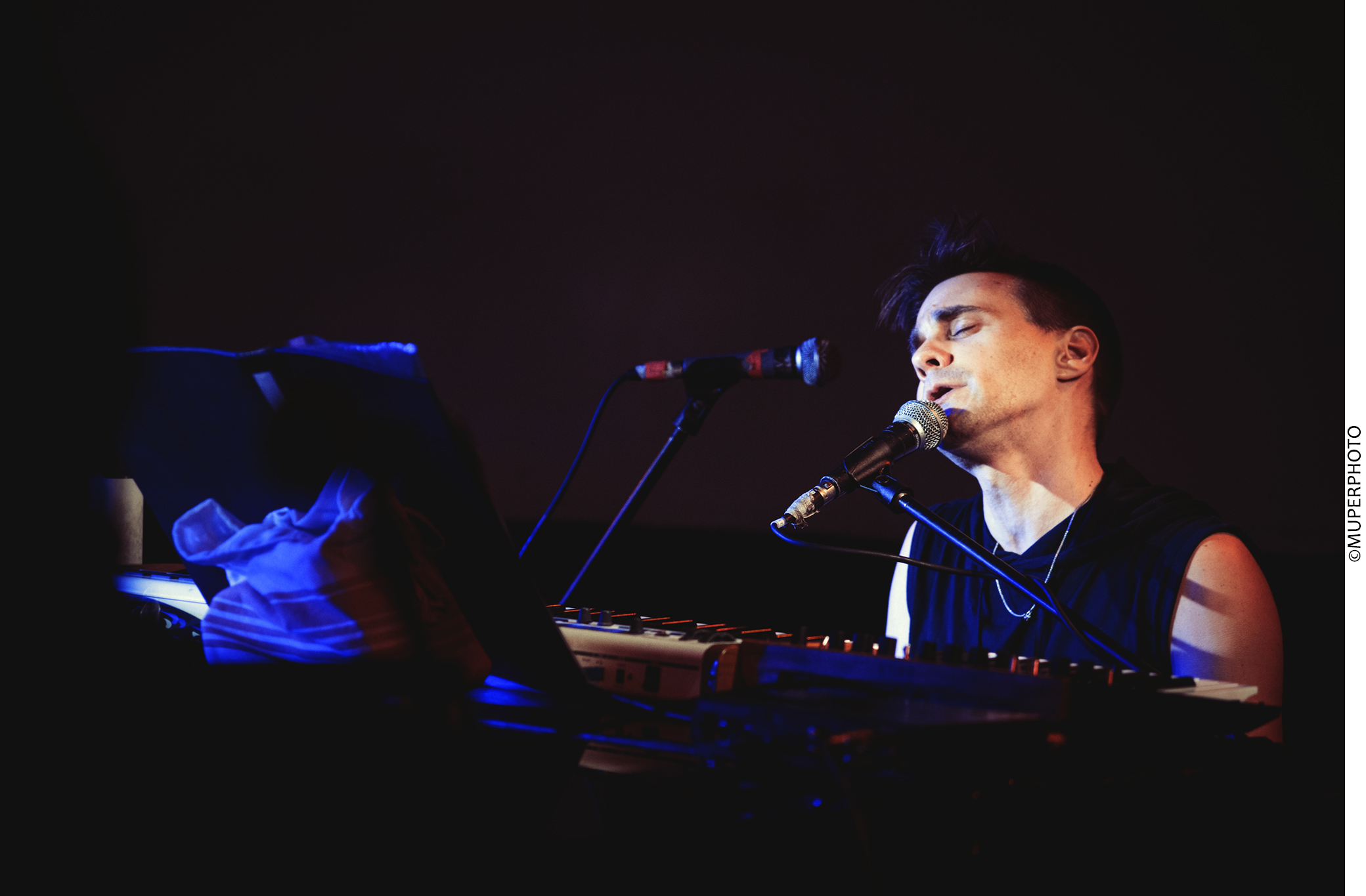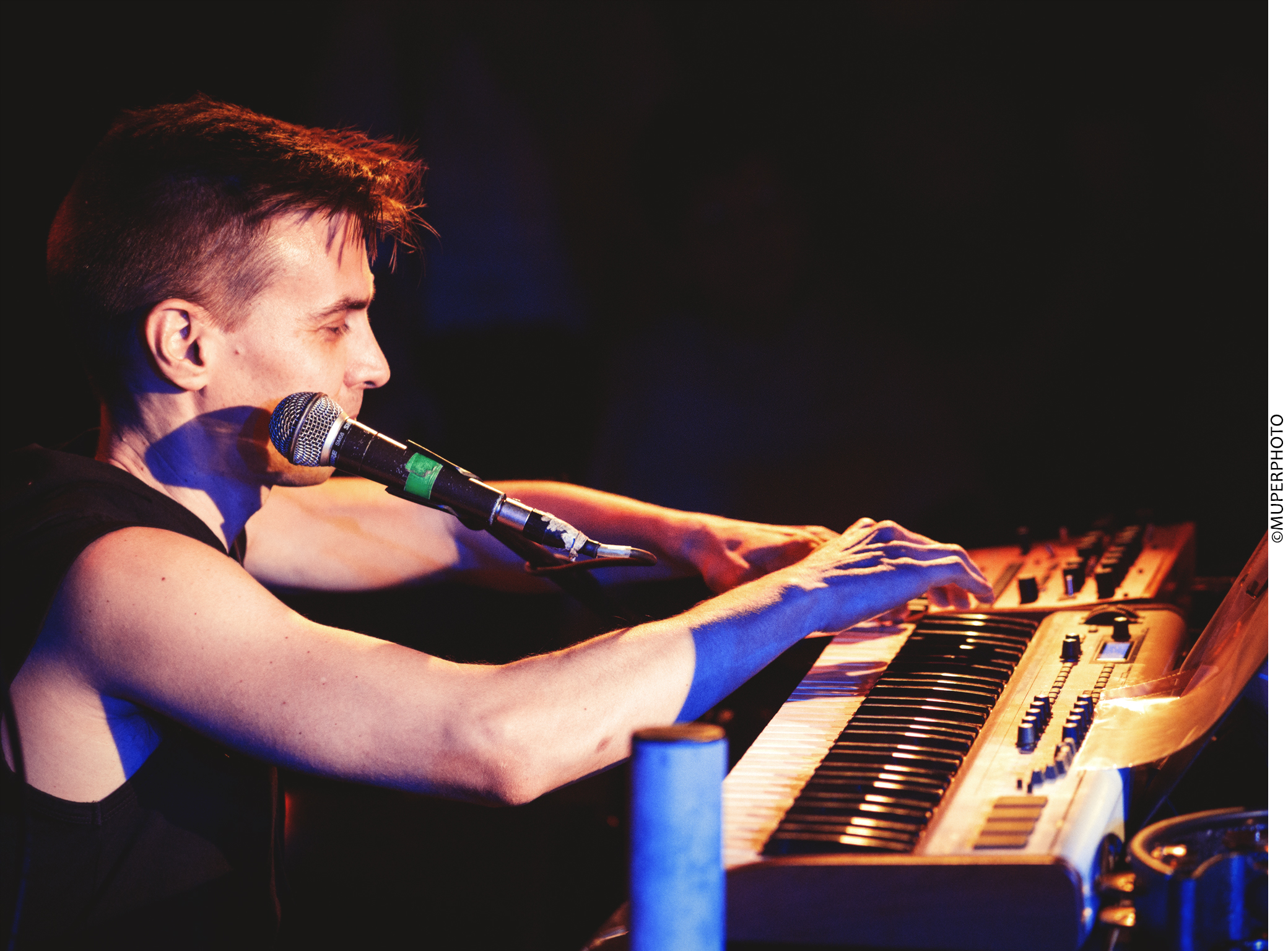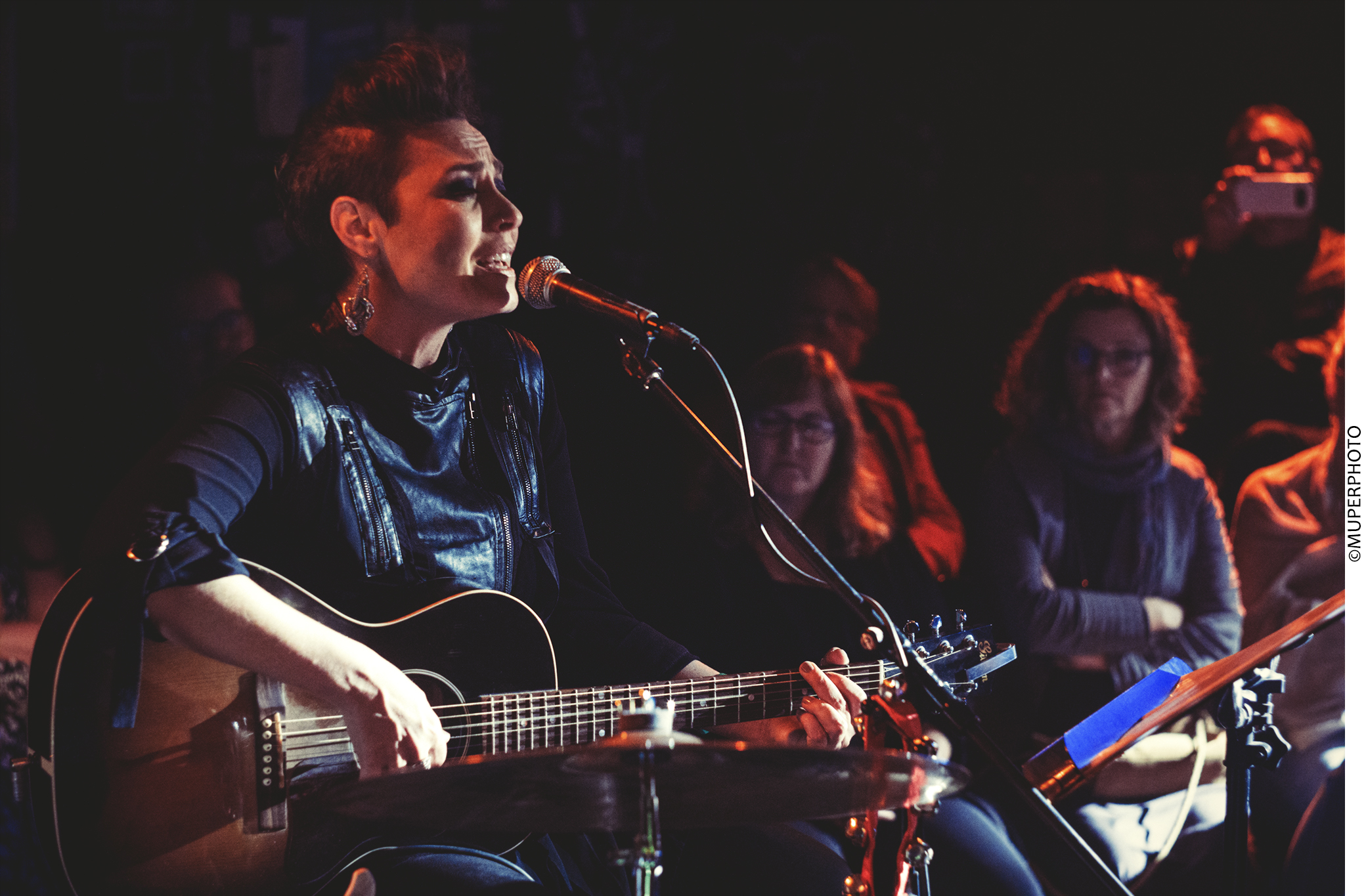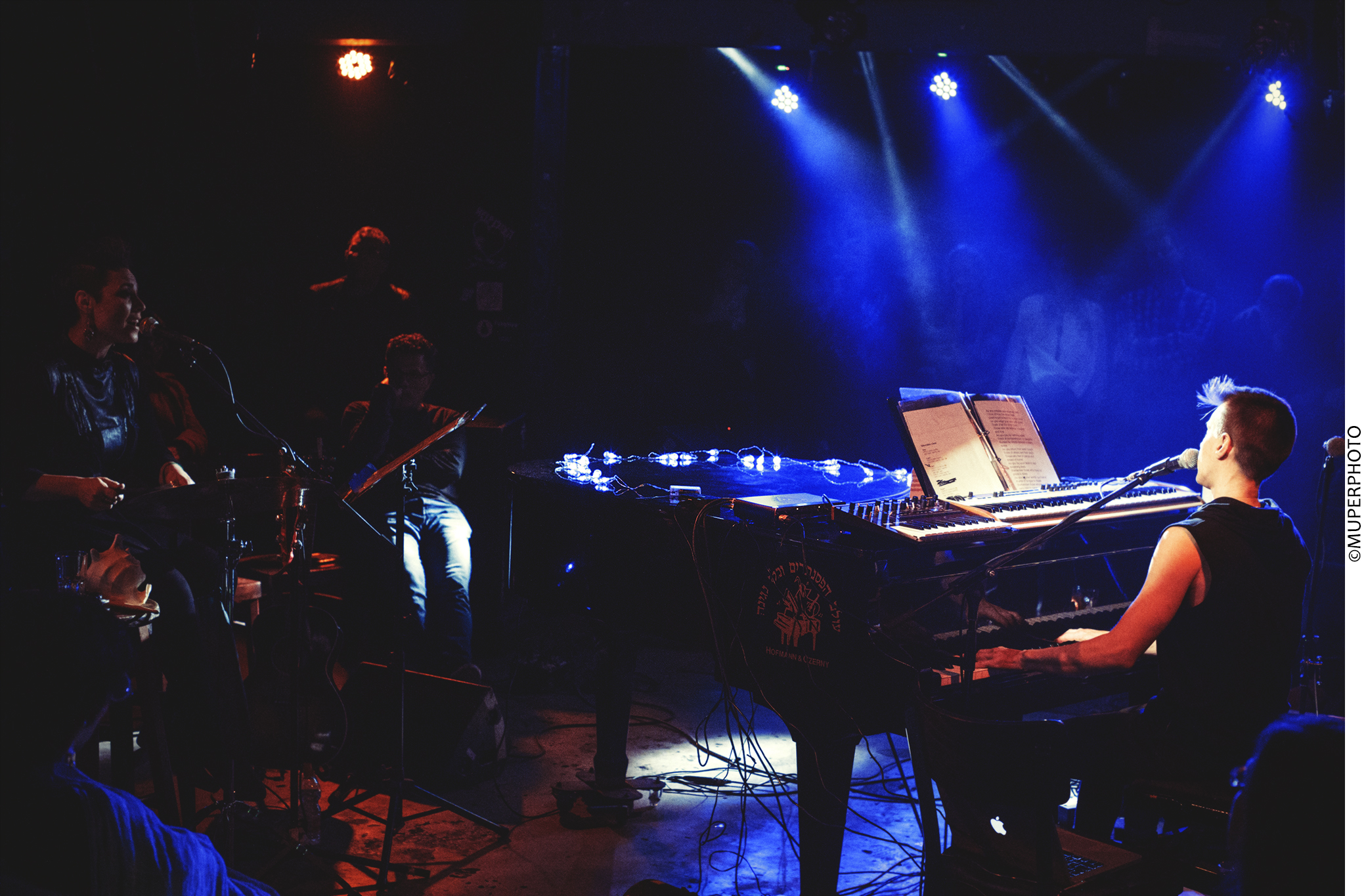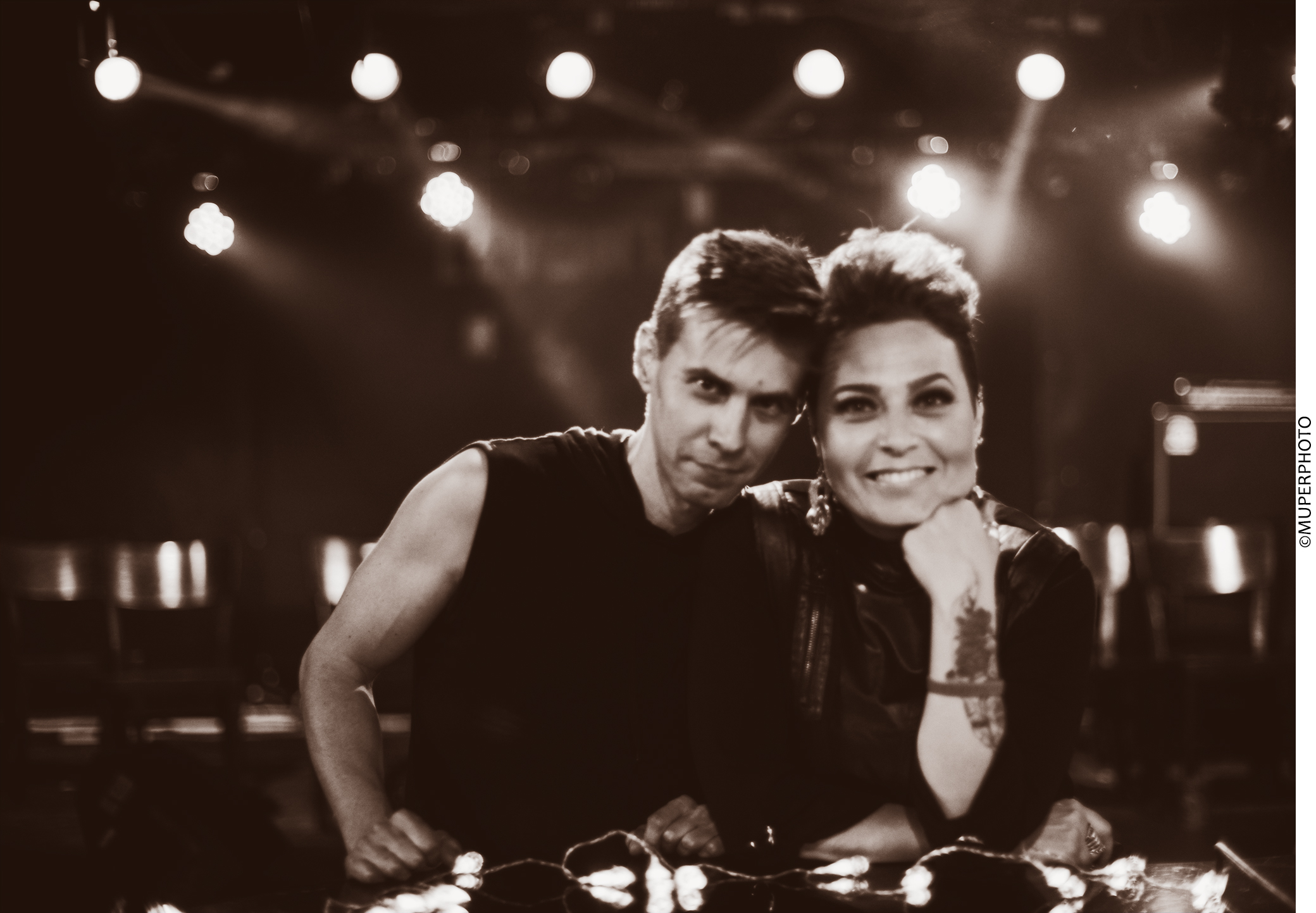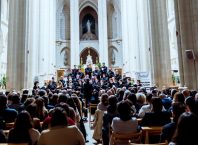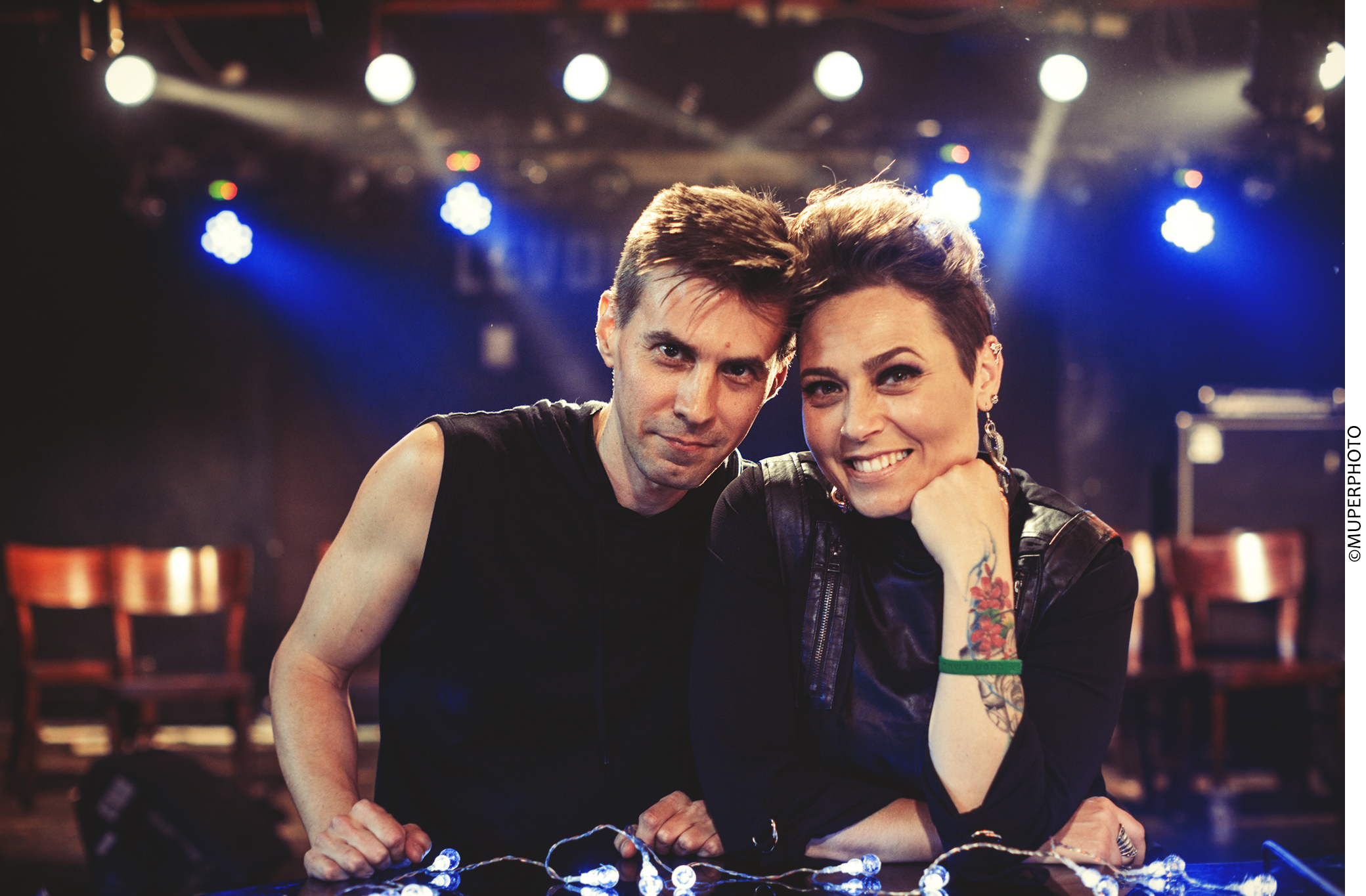
A grand piano stands in the center of the rough concrete floor at Levontin 7, the audience gathered around in a circle; an urban campfire. Into this circle come Mira Awad and Adam Gorlizki. She takes her seat, surrounded by a guitar, microphone, cymbals, tambourine, wooden flute, bells, and conch shell. Adam sits at the piano, with keyboards all around – the computer next to him, and another small electronic keyboard resting on top of the piano. It’s a world of musical fusion, sounds and stories coming together. This night, April 22, 2018, the first night of Levontin 7’s 360° Piano Festival, is the first time they are performing this show together. They call it Narratives; it’s something different, more intimate. Let me take you there, with the images of Muperphoto to capture the feeling of the music and the moment.
Mira takes up the flute, and its Arabic tones swirl up into the night, a wordless song carried on a desert wind. Then Adam gets a beat going with a synth electronic sound, while his hands conjure a melody from the piano, beautiful and poignant. As they sing Gorlizki’s Shtey Aratzot (Two Countries), the energy flows between them, reaching out in ever-widening circles. When the song ends, in an ethereal a cappella harmony, Mira makes the introductions: “He’s an Ashkenazi male with privilege, I’m an Arab woman from a village in the Galilee – right at the bottom of that ladder.”
Both are accomplished artists with an impressive list of credits, yet Mira and Adam represent different places and perspectives on the Israeli spectrum. In their songs and conversations, they explore their experiences in life and art, making music and through their music, working for social justice in this troubled time and land. Next on the playlist was Mira’s Bahlawan (Acrobat), the title song from her debut solo album in 2009: “Walking on a tight cord/my arms stretched to the sides/no guarantee, no safety net/an acrobat.” They sang together in Arabic; this is how social change happens, person to person, one song at a time.
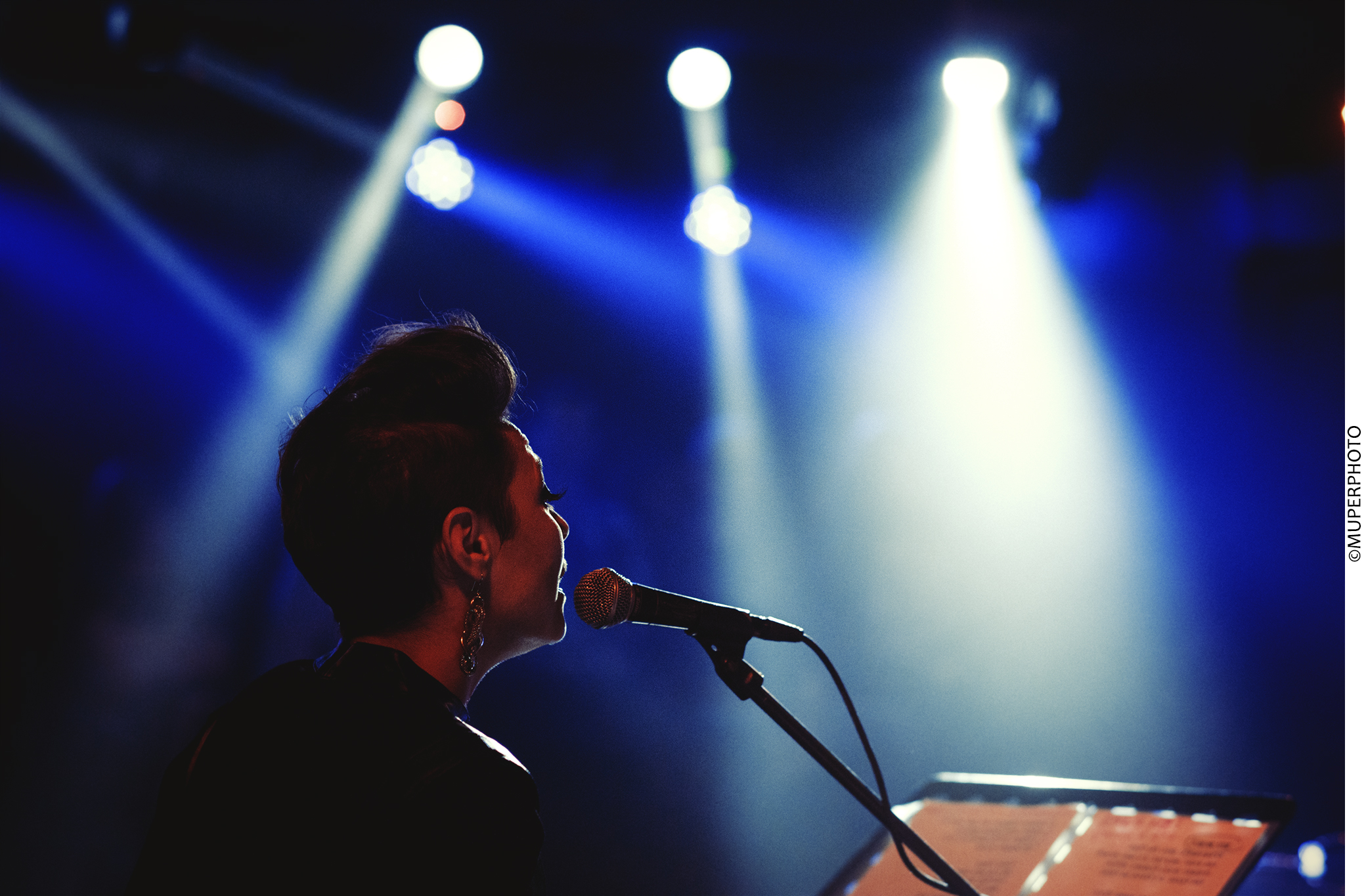
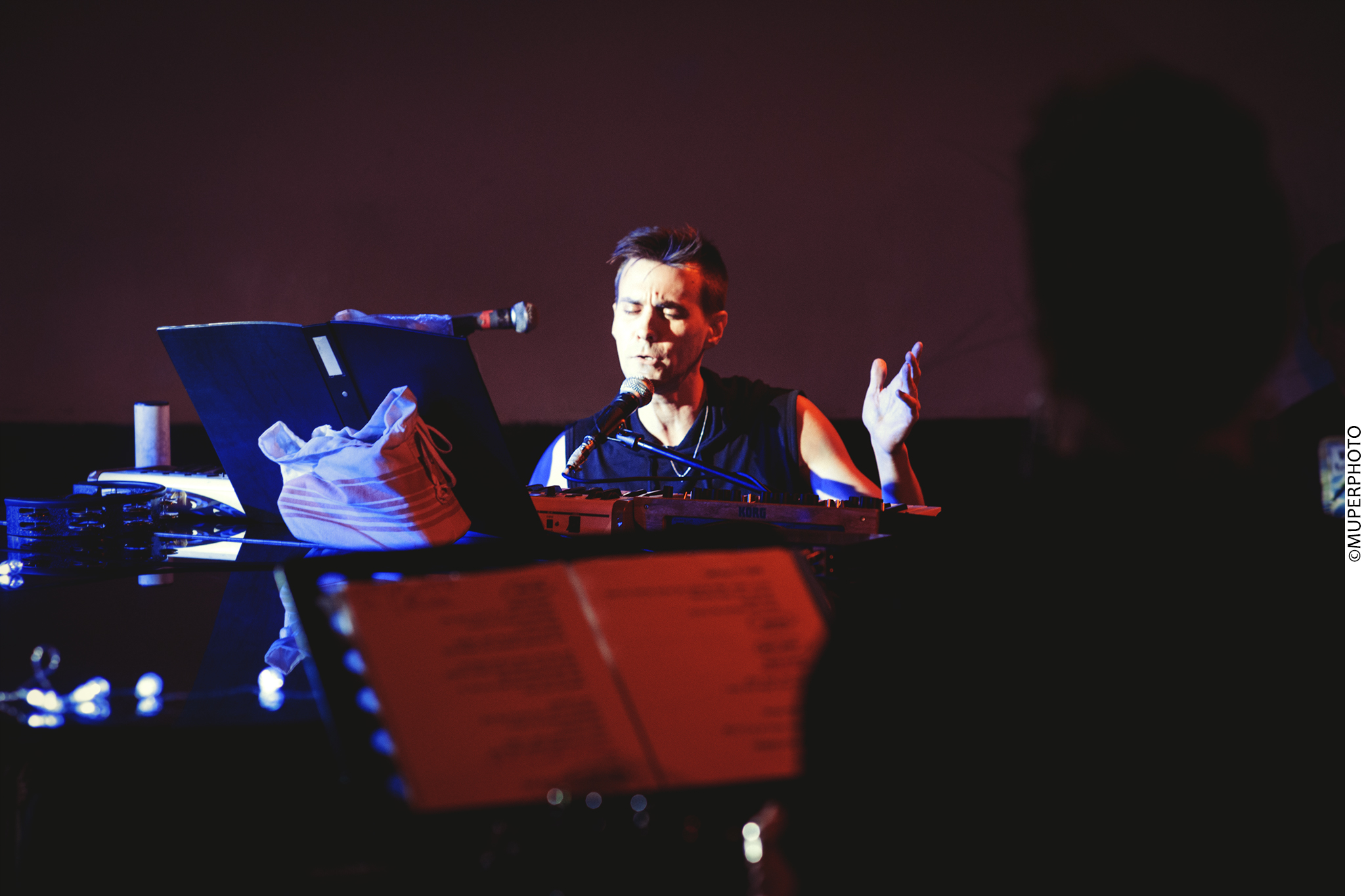
They sang and talked about life and love, the desire to live the dream, the realization that some dreams will never come true, and the courage to dream on. Alternating between Mira’s songs and Adam’s, between Arabic and Hebrew, with a few songs in English, the music reflected diverse influences – from Israeli and Arabic folk, to rock with a touch of synth. Through this collaboration, all the songs – both Mira’s and Adam’s – take on a different feeling, a new texture. It was a rare night of beauty, music, and laughter, with an easy, intimate rapport between performers and audience. They sang Migdalim (Towers), a song Adam wrote after the protests on Rothschild Boulevard in 2011: “I walk down to the boulevard and it’s a bit sad/how we marched here and nothing changed.” They sang a new song by Mira, Yaba – which means ‘father’ in Arabic; a conversation between father and daughter, singing the difficulty of experiencing identity as a Palestinian and as an Israeli. One of my favorite songs of the evening is Think of Others, with Mira’s music to the words of the poet Mahmoud Darwish, in Arabic, Hebrew, and English: “As you express yourself in metaphor, think of others (those who have lost the right to speak). As you think of others far away, think of yourself (say: If only I were a candle in the dark.)”
